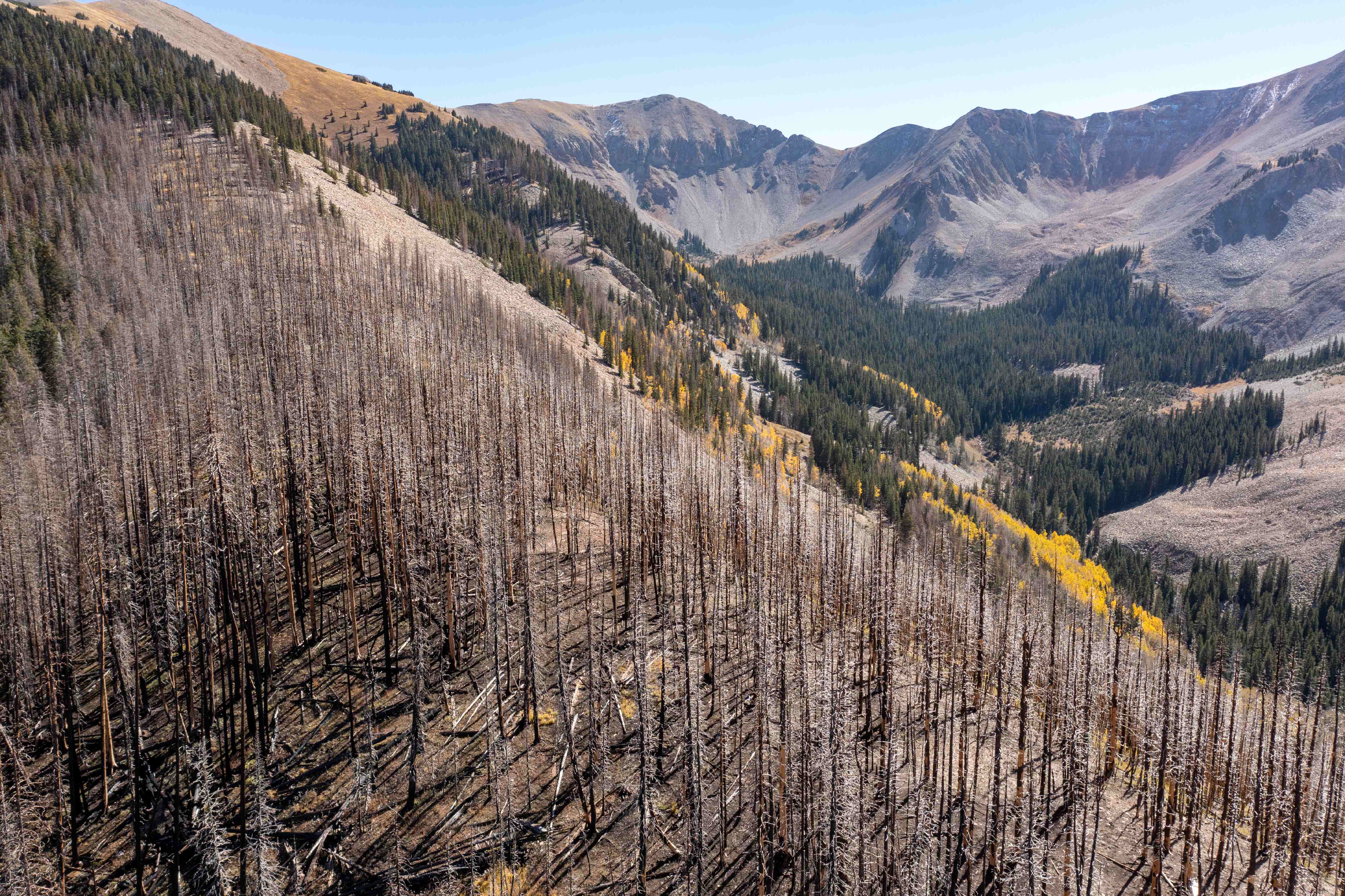
CLIMATEWIRE | U.S. forests could worsen global warming instead of easing it because they are being destroyed by natural disasters and are losing their ability to absorb planet-warming gases as they get older, a new Agriculture Department report says.
The report predicts that the ability of forests to absorb carbon will start plummeting after 2025 and that forests could emit up to 100 million metric tons of carbon a year as their emissions from decaying trees exceed their carbon absorption. Forests could become a “substantial carbon source” by 2070, the USDA report says.
U.S. forests currently absorb 11 percent of U.S carbon emissions, or 150 million metric tons of carbon a year, equivalent to the combined emissions from 40 coal power plants, the report says.
The prediction suggests that the loss of forests as a natural carbon absorber will require the U.S. to cut emissions more rapidly to reach net zero, said Lynn Riley, a senior manager of climate science at the American Forest Foundation, a nonprofit conservation advocate not involved in the USDA report.
“Ten percent of our domestic emissions. That is a really significant portion,” Riley said. “As we work to decarbonize … forests are one of the greatest tools at our disposal. If we were to lose that, it means the U.S. will contribute that much more” in emissions.
The USDA report published Monday assesses and predicts the extent of renewable resources provided by the nation’s forests and undeveloped landscapes, including farmlands, wetlands and grasslands. The decennial report is mandated by Congress, which in 1990 added a requirement to study climate impacts on forests and rangelands.
The loss of carbon absorption is driven in part by natural disasters such as wildfires, tornadoes and hurricanes, which are increasing in frequency and strength as global temperatures rise. The disasters destroy forestland, disrupting their ecosystem and decreasing their ability to absorb carbon, Riley said.
Development in forested areas, which the report projects will continue to increase, is having the same effect as people increasingly move to the so-called wildland urban interface.
Aging forests also contribute. Older, mature trees absorb less carbon than younger trees of the same species, and the U.S. forests are rapidly aging, the report found.
“Naturally, the forest is going to reach a saturation point where it plateaus in how quickly it is sequestering carbon from the atmosphere,” Riley said, explaining why older forests often absorb less carbon.
More aggressive forest management can help by cutting down a small portion of aging forests to make ways for younger trees that absorb more carbon, Riley said. A thorough study of each forest should be done before removing older trees, Riley said, comparing forest management to prescribing the proper drugs to a patient.
Monday’s report considered a range of factors such as the speed of global warming, population growth and energy transition in making dozens of projections on forest size, land use change, wildfire risk, and the ability of forests to absorb and store carbon.
Reprinted from E&E News with permission from POLITICO, LLC. Copyright 2023. E&E News provides essential news for energy and environment professionals.
Stay connected with us on social media platform for instant update click here to join our Twitter, & Facebook
We are now on Telegram. Click here to join our channel (@TechiUpdate) and stay updated with the latest Technology headlines.
For all the latest For News Update Click Here
